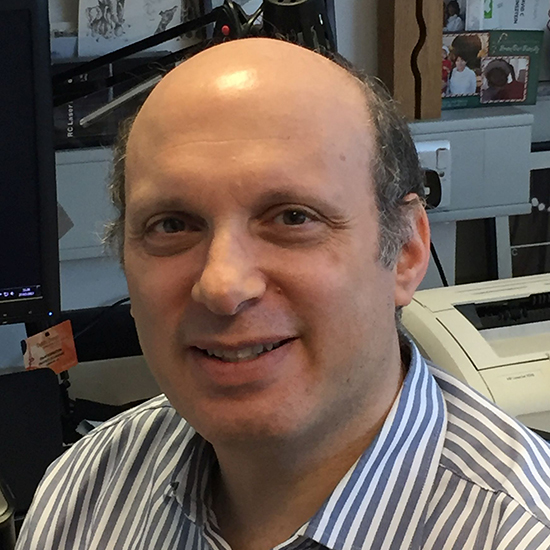David Rubinsztein has been a leader in the field of autophagy, particularly in the context of neurodegenerative diseases. His laboratory discovered that this pathway plays an important role in degrading many of the intracytoplasmic, aggregate-prone, proteins causing neurodegenerative diseases, like Huntington’s disease, Parkinson’s disease and various dementias. He pioneered the strategy of autophagy upregulation as a possible therapeutic approach in various neurodegenerative diseases and identified drugs and novel pathways that may be exploited for this objective. He has made key contributions to illuminating the relevance of autophagy defects as a disease mechanism and to the basic cell biology of this important catabolic process.
Rubinsztein is currently deputy director of the Cambridge Institute for Medical Research and Academic Lead of the Alzheimer’s Research UK Cambridge Drug Discovery Institute. He was elected as a Fellow of the Academy of Medical Sciences (2004), Professor of Molecular Neurogenetics (University of Cambridge, personal chair (2005)), and as an EMBO member (2011). He was awarded the Graham Bull Prize for Clinical Science (Royal College of Physicians, 2007) and the 2017 Thudichum Medal (Biochemical Society) for outstanding contributions to neuroscience.
Professional position
- Professor of Molecular Neurogenetics, Department of Medical Genetics, University of Cambridge
Subject groups
-
Molecules of Life
Cell biology (incl molecular cell biology), Biochemistry and molecular biology
-
Cell Biology
Cellular pathology, Genetics (excluding population genetics)
-
Multicellular Organisms
Cellular neuroscience
-
Health and Human Sciences
Clinical neuroscience, Clinical pathology, Molecular medicine

